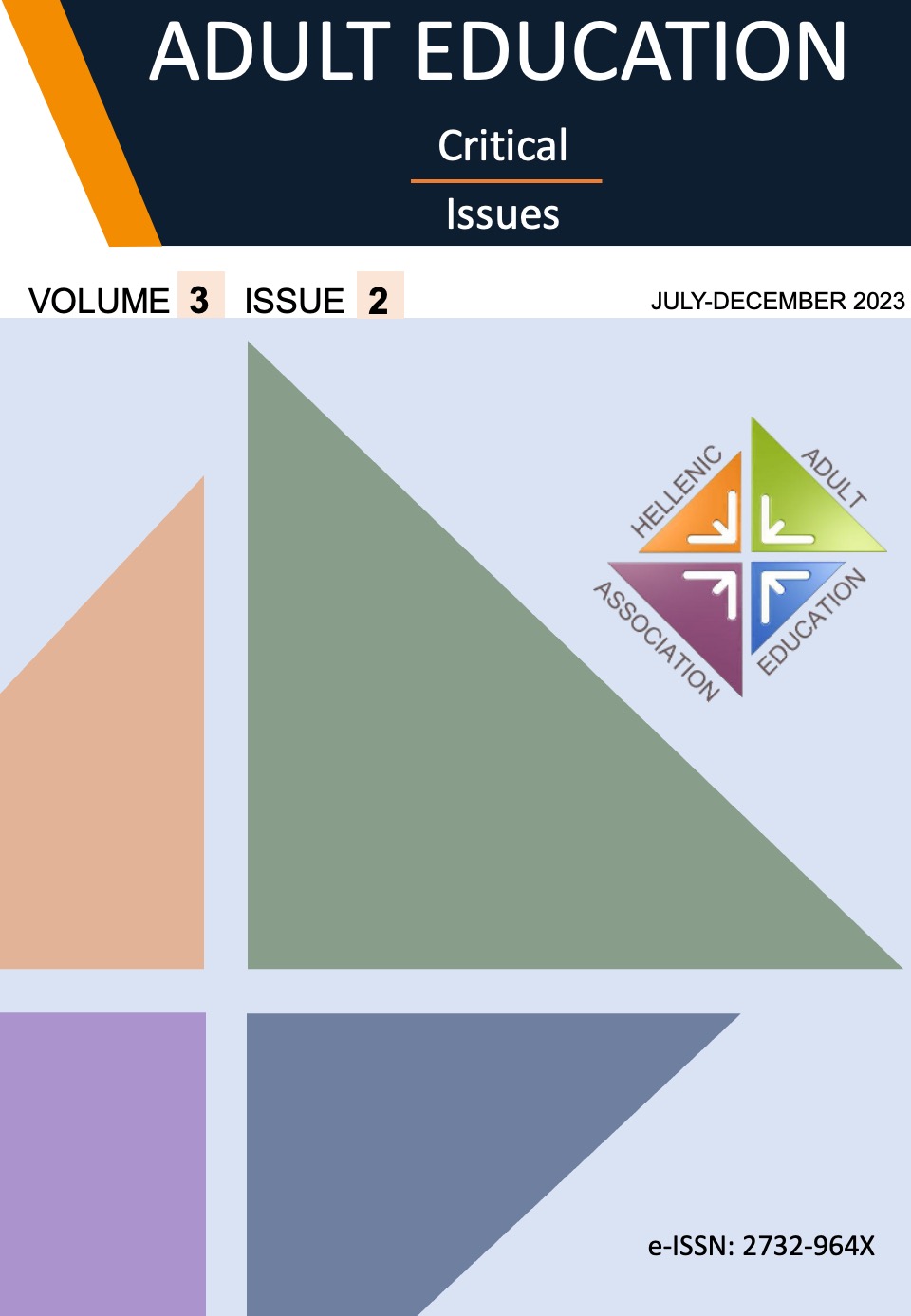Refining Adult Learners’ Discursive Capacities: A Response to the Current Epistemological Crisis through the Lens of Transformation Theory

Abstract
The following article begins with the observation that both public discourses, as well as dialogue between adult learners within certain educational contexts, is frequently confined to competitive and strongly assertive claims, a characteristic which significantly diminishes the epistemological potential of the dialogical act. Drawing on the description of the current ‘epistemological crisis’ by Hoggan and Hoggan – Kloubert (2021), the article first attempts to show how this crisis is reflected in the understanding of the dialogical act among particular groups of adult learners. The article then tries to explore ways through which this understanding can be enriched and transformed into a more complex and multidimensional process. The central orientation of such a transition, is elaborated through the lens of Jack Mezirow’s Transformation Theory (1991, 2000), thus growing out of an examination, as well as an effort to transform, the epistemological ‘habits of mind’ which characterize the learners’ distorted perception of the dialogical act. The discussion of the learners’ epistemological habits of mind, is followed by the attempt to set up a framework of discursive activities, which help learners actualize the above transformation, specifically to the way they articulate questions of value (that is, their value priorities and value assumptions). The suggested activities are geared towards cultivating the learners’ awareness of evaluative and conceptual ‘complexity’, with the ultimate aim of allowing this awareness to strengthen their epistemic and discursive agency. The gradual cultivation of this agency is demonstrated through a range of practical examples, which are analysed in terms of their transformative, philosophical, and ethical dimensions. The learners’ renewed understanding of the dialogical act, is finally related to their capacity to activate their ‘reflective judgment’ (see also Kant, 1790 / 1987 in Hoggan and Hoggan – Kloubert, 2021).
Article Details
- How to Cite
-
Virvidaki, K. (2024). Refining Adult Learners’ Discursive Capacities: A Response to the Current Epistemological Crisis through the Lens of Transformation Theory. Adult Education Critical Issues, 3(2), 48–56. https://doi.org/10.12681/haea.35198
- Section
- Articles

This work is licensed under a Creative Commons Attribution 4.0 International License.
Authors who publish with this journal agree to the following terms:
- Authors retain copyright and grant the journal right of first publication with the work simultaneously licensed under a Creative Commons Attribution License that allows others to share the work with an acknowledgement of the work's authorship and initial publication in this journal.
- Authors are able to enter into separate, additional contractual arrangements for the non-exclusive distribution of the journal's published version of the work (e.g., post it to an institutional repository or publish it in a book), with an acknowledgement of its initial publication in this journal.
- Authors are permitted and encouraged to post their work online (e.g., in institutional repositories or on their website) prior to and during the submission process, as it can lead to productive exchanges, as well as earlier and greater citation of published work (See The Effect of Open Access).


